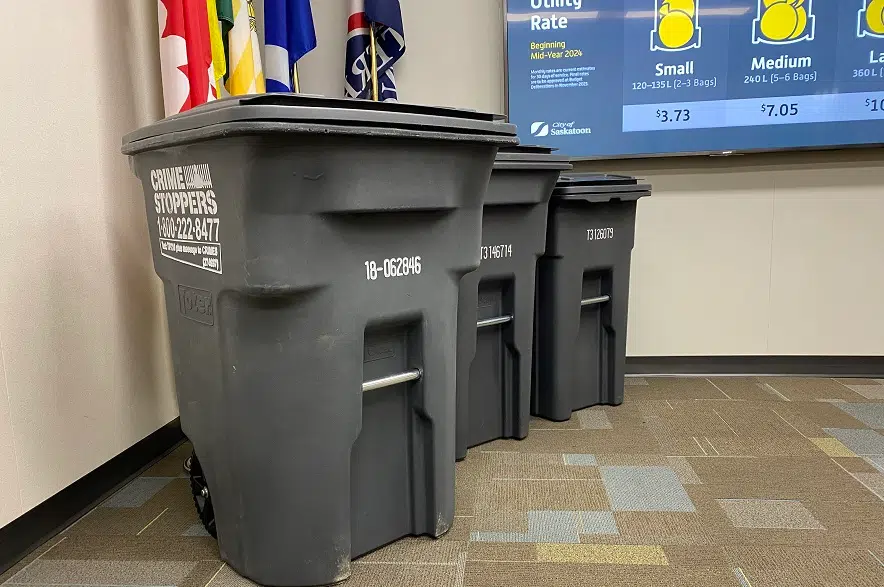Two Saskatoon city councillors aren’t impressed with the plan to move garbage collection from being funded by property taxes to becoming a monthly utility.
In January of next year, residents will begin paying about $10 per month on their utility bills for curbside garbage pickup until they decide whether they want a small-, medium- or large-sized bin going forward.
The swap will likely take place sometime in the spring.
During Tuesday’s environment, utilities and corporate services committee meeting, councillors Troy Davies and Darren Hill said they hadn’t supported the idea to add the monthly fees to utility bills from its inception.
“We had set the administration on a clear direction a number of years ago to keep it on property tax. Then that was adjusted almost three years after the direction of council simply as a shell game to create a new funding stream for an underfunded business line,” said Hill.
He added that he didn’t believe there was much evidence to support that variable cart sizes would be enough to divert enough garbage away from the landfill, calling it an “exercise in futility.”
“It is a waste of taxpayer’s money to continue down this path,” he emphasized.
Davies agreed with his colleague’s assessment of the plan.
“From my perspective as well, I have voted against this since it has first come to the floor and that’s where I would be at today,” he said.
However, both councillors said voting down recommendations made by administration at the committee level without debate by city council would negate the amount of work put into the project.
On the flip side, councillors Hilary Gough and Mairin Loewen both said they believed moving the black cart program to a utility would give people more choice, and would make the playing field level for everyone.
“It is reflected in best practices from other jurisdictions to give people the most control that we can over how they handle waste as a household,” Loewen said. “I think that this is really good value for our residents.”
Loewen said it would give people the ability to control their costs, while Gough added it was also a matter of fairness for some businesses and others.
“Those who’ve been paying for it and not receiving these programs are also paying for a separate and parallel service in accessing waste disposal,” Gough said.
The matter will now go to council for final questions, debate and direction.







